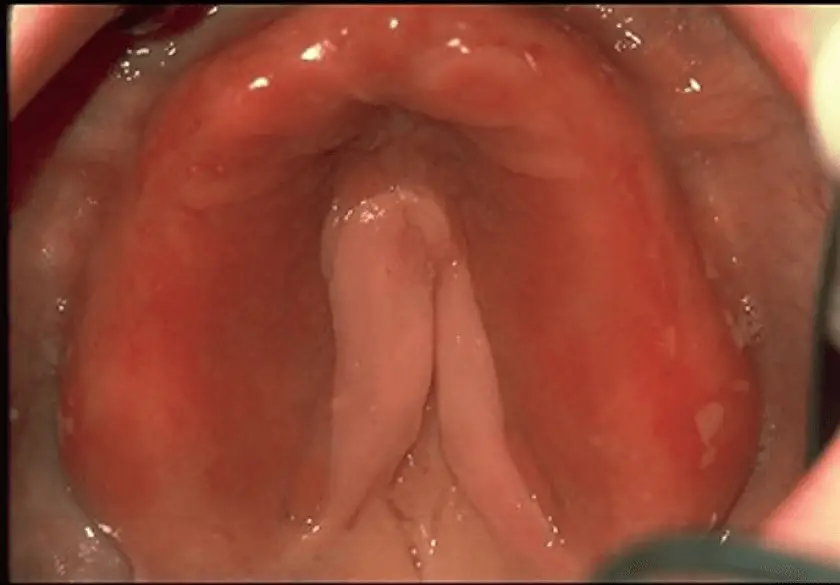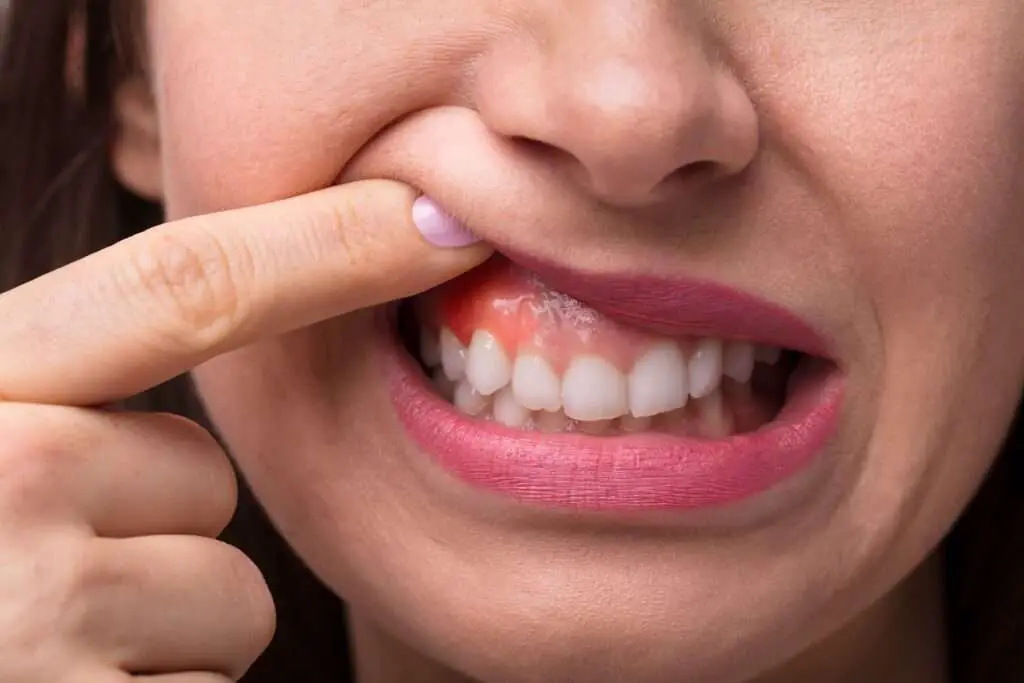
Denture sores can be a huge source of discomfort, making it difficult to enjoy life’s simple pleasures. But there is hope! Home remedies for denture sores provide an effective and natural way to manage pain and discomfort. In this article, we’ll explore three categories of home remedies for denture sores – moisturizing, anti-inflammatory, and antiseptic – that are sure to help soothe those pesky denture sores. We’ll also include tips on prevention and signs of infection to keep your mouth healthy for years to come. So let’s get started on your journey towards denture sore relief!
What are denture sores?

Sometimes the gums underneath the dentures become inflamed, irritated, or uncomfortable from the constant pressure of the dentures. This issue, known as a denture sore, affects nearly half of all denture wearers. This includes both new denture wearers and those of us who have been using dentures for years.
What are the causes of denture sores?
The most common causes of denture sores are ill-fitting dentures, inadequate cleaning and maintenance of the dentures, and poor oral hygiene. Wearing your dentures too long or not taking them out at night can also cause irritation and discomfort.
What are the symptoms of denture sores?
The symptoms of a denture sore can vary, but generally include redness or a burning sensation on the gums underneath the dentures. In more severe cases, there may be swelling and tenderness in the area. It’s important to note that these symptoms can also indicate an infection, so if they persist or worsen, it’s best to consult with your dentist right away.
How to cure denture sores?
Now that you know what denture sores are and what causes them, let’s talk about how to cure them. Home remedies for denture sores offer an effective and natural way to manage pain and discomfort. Below, we’ll explore three categories of home remedies for denture sores: moisturizing, anti-inflammatory, and antiseptic.
Read: What Does a Cavity Look Like?
Effective Home Remedies For Denture Sores
Moisturizing Remedies
Moisturizing remedies are an effective way to soothe and alleviate the pain associated with denture sores. These remedies work by hydrating the affected area, which can help to reduce inflammation and promote healing.
1. Coconut oil
Coconut oil is a popular natural moisturizer that has been used for centuries to treat a variety of skin conditions. This oil is rich in fatty acids that can help to nourish and hydrate the skin, making it an excellent choice for treating denture sores. To use coconut oil, simply apply a small amount to the affected area and massage gently.
2. Aloe vera
Aloe vera is another popular natural remedy that is known for its moisturizing and healing properties. This plant contains a gel-like substance that can help to soothe and cool the skin, reducing inflammation and promoting healing. To use aloe vera, simply cut a small piece from the plant and apply the gel to the affected area.
3. Honey
Honey is a natural antibacterial and anti-inflammatory agent that can help to reduce swelling and prevent infection in denture sores. This sweet substance is also a natural moisturizer that can help to keep the affected area hydrated and promote healing. To use honey, simply apply a small amount to the affected area and leave it on for 15-20 minutes before rinsing off with warm water.
4. Glycerin
Glycerin is a natural humectant that can help to attract and retain moisture in the skin, making it an effective way to soothe and hydrate denture sores. This substance is also known for its soothing and anti-inflammatory properties, making it an excellent choice for reducing pain and inflammation in the affected area. To use glycerin, mix it with an equal amount of water and apply it to the affected area using a cotton swab.
Anti-inflammatory Remedies
Anti-inflammatory remedies can help reduce swelling, redness, and discomfort in denture sores. These remedies are also known for their ability to reduce pain and promote healing in the affected area.
1. The Beneficial Effects of Saltwater Rinses on Denture Sores
Saltwater rinsing is a proven home remedy for denture sores. This is due to the antiseptic and anti-inflammatory properties of salt, which can help reduce inflammation and promote healing in the affected area. Additionally, saltwater rinses can help to reduce pain and discomfort associated with denture sores. To use this remedy, simply mix 1 cup of warm water with 1 teaspoon of salt and stir until the salt dissolves. Use a cotton swab or gauze pad to apply the solution directly to the affected area and leave it on for 10–15 minutes before rinsing it off with warm water.
2. Turmeric and its Anti-inflammatory Properties
Turmeric is a popular herbal remedy that has been used for centuries to treat a variety of skin conditions. This spice contains curcumin, an active compound that has powerful anti-inflammatory and antioxidant properties. These compounds can help to reduce inflammation in denture sores and promote healing. To use this remedy, mix 1 teaspoon of turmeric powder with a few drops of water to make a paste. Apply the paste directly to the affected area and leave it on for 10–15 minutes before rinsing it off with warm water.
3. Chamomile Tea as a Compress
Chamomile tea is a popular herbal remedy that can be used to treat denture sores. This remedy is known for its calming and anti-inflammatory properties, which can help to soothe the affected area and reduce inflammation. Additionally, chamomile tea can help reduce pain and promote healing. To use this remedy, steep 1 teaspoon of chamomile tea in a cup of boiling water for 10–15 minutes. Allow the tea to cool before applying it directly to the affected area as a compress. Leave it on for 15-20 minutes before rinsing it off with warm water.
4. Clove Oil and Its Numbing and Anti-Inflammatory Effects
Clove oil is an effective natural remedy for denture sores due to its pain-numbing, anti-inflammatory, and antiseptic properties. The main active compound in clove oil, eugenol, provides both analgesic and anti-inflammatory effects, making it an ideal home remedy for denture sores. To use this remedy, mix 1 drop of clove oil with 1 teaspoon of carrier oil such as coconut or olive oil and apply it to the affected area using a cotton swab. Leave the mixture on the site for 15 minutes before rinsing it off with warm water. Do not use clove oil more than once a day as it can cause skin irritation and burning if overused. Additionally, be sure to test the mixture on a small patch of skin before applying it directly to the affected area.
Antiseptic Remedies
Antiseptic remedies are an essential part of any home remedies for denture sores, as they can help fight bacteria and prevent infection. These remedies work by killing bacteria in the affected area, reducing the risk of infection, and promoting healing.
1. Tea Tree Oil and Its Antibacterial Properties
Tea tree oil is a popular natural remedy for denture sores due to its strong antiseptic, antibacterial, and anti-inflammatory properties. This essential oil is known for its ability to fight bacteria and reduce inflammation in the affected area. Additionally, tea tree oil can reduce pain and promote healing in denture sores. To use this remedy, mix 1 teaspoon of tea tree oil with 2 teaspoons of coconut or olive oil and apply the mixture to the affected area using a cotton swab. Leave it on for 10–15 minutes before rinsing it off with warm water. Do not use tea tree oil more than once a day as it can cause skin irritation and burning if overused. Additionally, be sure to test the mixture on a small patch of skin before applying it directly to the affected area.
2. Baking Soda and its Antibacterial Properties
Baking soda is a popular home remedy for denture sores due to its antibacterial and antiseptic properties. Baking soda helps to neutralize the acidity of the mouth, reducing the chances of infection and promoting healing. Additionally, baking soda can help reduce pain and inflammation, making it an ideal remedy for denture sores. To use this remedy, mix 1 teaspoon of baking soda with a few drops of water to make a paste. Apply the paste directly to the affected area and leave it on for 10–15 minutes before rinsing it off with warm water. Do not use baking soda more than twice a day, as overuse can cause skin irritation and burning. Additionally, be sure to test the paste on a small patch of skin before applying it directly to the affected area.
3. Vinegar and its Effectiveness as an Antiseptic
Vinegar is a popular home remedy for denture sores due to its antiseptic properties. It helps to reduce the risk of infection, fight bacteria, and promote healing. The main active compound in vinegar, acetic acid, provides antibacterial and anti-inflammatory effects, making it an ideal remedy for denture sores. To use this remedy, mix 1 tablespoon of vinegar with 2 tablespoons of water and apply the mixture directly to the affected area using a cotton swab. Leave it on for 10–15 minutes before rinsing it off with warm water. Do not use vinegar more than once a day, as it can cause skin irritation and burning if overused. Additionally, be sure to test the mixture on a small patch of skin before applying it directly to the affected area.
4. Garlic and its Antibacterial and Anti-Inflammatory Benefits
Garlic is a popular home remedy for denture sores due to its antibacterial, antiseptic, and anti-inflammatory properties. Garlic contains a compound called allicin, which has strong antibacterial qualities that can help fight bacteria and reduce the risk of infection. Additionally, garlic’s anti-inflammatory properties can help reduce pain and promote healing in denture sores. To use this remedy, mash 2 cloves of garlic into a paste and apply it directly to the affected area using a cotton swab. Leave it on for 10–15 minutes before rinsing it off with warm water. Do not use garlic more than once a day as it can cause skin irritation and burning if overused. Additionally, be sure to test the paste on a small patch of skin before applying it directly to the affected area.
How Can I Prevent Sore Gums From Dentures?

There are steps you can take to prevent sore gums from dentures:
- Ensure Proper Fit: One of the most common causes of sore gums from dentures is an improper fit. Make sure your dentures fit correctly by visiting your dentist regularly for adjustments.
- Practice Good Oral Hygiene: Keeping your mouth clean is essential in preventing sore gums from dentures. Brush your teeth and gums twice a day with a soft-bristled brush and use an antiseptic mouthwash to kill bacteria.
- Soak Your Dentures: Soaking your dentures overnight in a solution recommended by your dentist can help keep them clean and free of bacteria that can cause gum irritation.
- Avoid Hard or Sticky Foods: Hard or sticky foods can cause damage to your dentures and irritate your gums. Stick to softer foods that are easier to chew.
- Use Dental Adhesives: If you’re having trouble keeping your dentures in place, consider using dental adhesives to help hold them in place and reduce irritation.
By following these tips, you can prevent sore gums from dentures and enjoy a more comfortable experience wearing them.
Conclusion
Denture sores can be uncomfortable and painful, but luckily, there are a number of home remedies for denture sores that can help reduce the symptoms and promote healing. Home remedies such as moisturizing, anti-inflammatory, and antiseptic agents can help fight bacteria and reduce pain. Additionally, following steps to ensure the proper fit of your dentures and practicing good oral hygiene can help you prevent sore gums from dentures. Talk to your dentist if you are still experiencing symptoms or discomfort. They will be able to provide additional advice and treatment options tailored to your specific needs.
FAQs
How long do denture sores take to heal?
The healing time for denture sores can vary from person to person. However, most people start feeling better within two weeks of starting treatment. It is important to follow the advice of your dentist and take proper care of your dentures.
Why do I get sores under my dentures?
Denture sores are a common problem that can occur due to various reasons such as ill-fitting dentures, poor oral hygiene, or an allergic reaction to the materials used in the dentures. It is important to consult your dentist if you experience any discomfort or soreness while wearing your dentures.
Can a denture sore get infected?
Yes, a denture sore can get infected if left untreated. It is important to maintain good oral hygiene and follow the advice of your dentist to prevent any infection. If you notice any signs of infection such as swelling, redness, or pus discharge, contact your dentist immediately.











